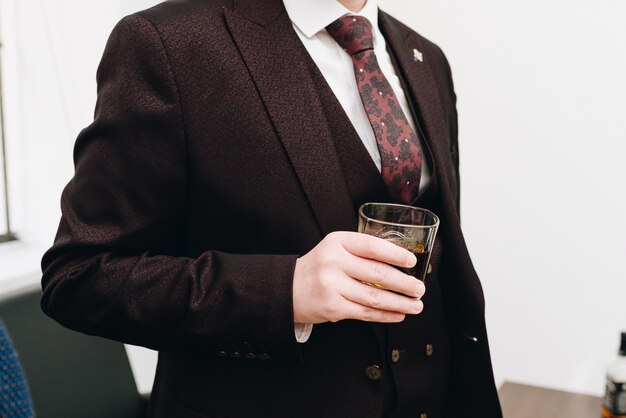What to Wear for Jury Duty: A Comprehensive Guide
When it comes to fulfilling your civic duty by serving on a jury, many questions can arise, including the all-important issue of appropriate attire. How you dress for jury duty might not be the first thing on your mind when you receive that summons, but it can make a significant impression. Presenting yourself in a way that respects the court system and ensures comfort over what can be a long day is crucial. So, how should you dress for this unique civic occasion?
Why Your Jury Duty Attire Matters
The courtroom environment is steeped in tradition and a sense of solemnity. Respecting this environment starts with how you present yourself. Dressing appropriately reflects your understanding of the responsibility you’re about to undertake and shows respect for the legal process.
Creating the Right Impression
- Professionalism: Dressing well signifies that you are taking the process seriously. It shows respect for the law, the court, and others involved.
- Neutral Presence: Your clothing should allow you to blend in, focusing more on the case rather than your attire.
- Respect and Decorum: Courts appreciate when jurors honor the decorum and gravitas of the legal environment.
General Guidelines for Jury Duty Attire
While different courts might have specific rules, some general guidelines can help you navigate what to wear.
Clothing Do's and Don'ts
Do's:
- Business Casual: Opt for attire that you might wear to a professional setting; this includes slacks, blouses, button-down shirts, and jackets.
- Comfortable Footwear: You’ll be sitting for extended periods, so comfortable shoes are a must. Consider loafers or flats over high heels or sneakers.
- Simple Accessories: Keep jewelry and accessories low-key and uncomplicated to avoid distractions.
- Layers: Courtrooms can vary in temperature, so having a sweater or blazer on hand can be wise.
Don'ts:
- Casual Wear: Avoid jeans, t-shirts, shorts, and sneakers.
- Provocative Clothing: Steer clear of clothing that’s too tight, too short, or revealing.
- Loud Patterns or Colors: Choose muted tones and avoid flashy prints that might draw attention.
- Slogans/Graphic Tees: Clothing with logos, graphics, or political statements is generally discouraged.
Dress Code Differences by Jurisdiction
It’s worth noting that dress codes can vary slightly depending on your jurisdiction. Urban courts might be more accustomed to a diverse range of styles compared to smaller, rural areas that might lean more traditional. Always check the specific instructions that accompany your jury summons for any region-specific guidance.
Practical Insights for a Day in Court
Comfort and Functionality
As jury duty can involve long hours of sitting and sometimes unpredictable schedules, your attire should be as comfortable as it is proper.
- Choose Breathable Fabrics: Opt for materials such as cotton or linen to keep comfortable throughout the day.
- Avoid Clunky Accessories: Minimalist watches or simple pieces maximize comfort without fuss.
Personal Care and Grooming
Alongside clothing, personal grooming reflects respect toward the court.
- Neat Hair: Ensure your hair is tidy and out of your face.
- Subtle Makeup: If you wear makeup, go for a natural look.
Contextual Dressing: Beyond the Basics
Once you grasp the fundamentals, consider some additional scenarios that affect how you might dress.
Seasons and Weather
Dressing appropriately for jury duty involves taking into account the season and weather.
- Summer: Light fabrics are key, but bring a light jacket as courtrooms are often air-conditioned.
- Winter: Layering is crucial. Opt for thermals that don’t look bulky.
Duration of Service
If you are selected for a long trial, remember that jury duty attire is about sustainability as much as appearance. Choose pieces you can re-wear comfortably.
- Wardrobe Rotation: Have a rotation of a few interchangeable outfits.
- Easy Maintenance Clothes: Prefer wrinkle-resistant clothing to look polished without extra effort.
🌟 Summary of Key Tips
Here’s a quick bullet-point summary to help you prepare for jury duty dressing:
- 👔 Dress professionally: Opt for business casual.
- 👟 Choose comfort: Comfortable shoes are essential.
- 🎨 Go for neutral tones: Stick to muted colors and avoid patterns.
- 🧥 Layer wisely: Bring layers for temperature changes.
- 🎯 Focus on functionality: Prioritize comfort for long sitting periods.
Final Thoughts: Empowering Your Courtroom Presence
Appropriate attire is your first step toward embracing the responsibility and respect inherent in jury duty. The focus should ultimately be on the role you play within the judicial process rather than on your wardrobe, but how you dress can set the stage for a positive experience in fulfilling this civic duty. Remember, when in doubt, err on the side of professionalism, and always check any specific dress code instructions provided with your jury summons.

